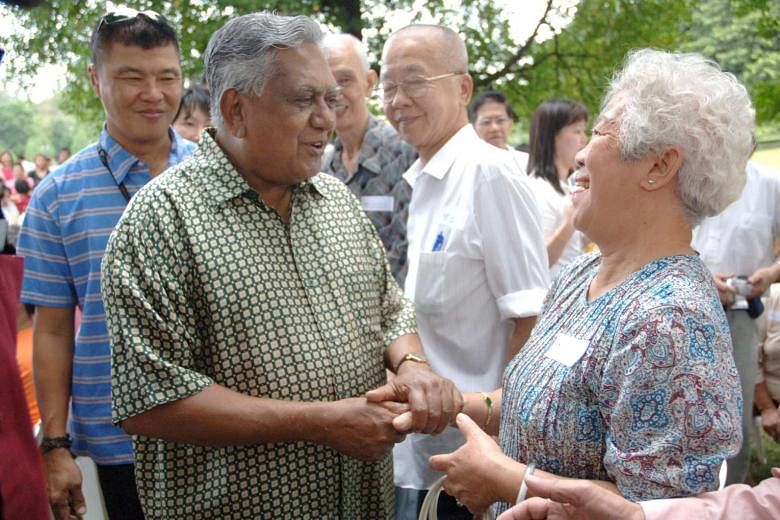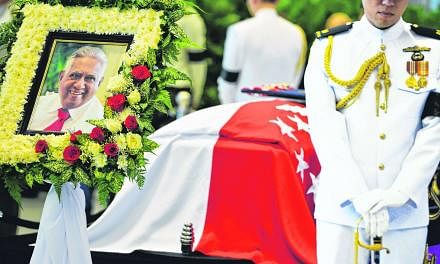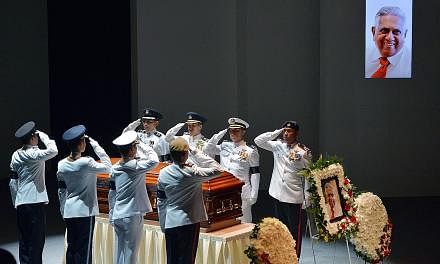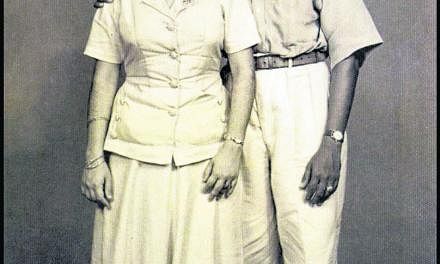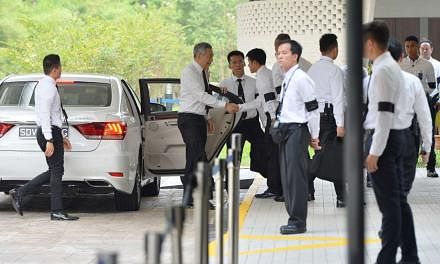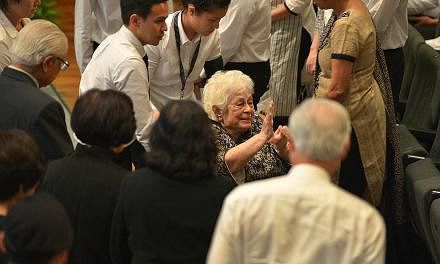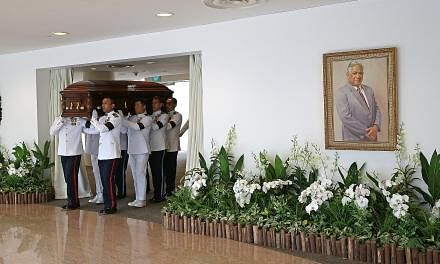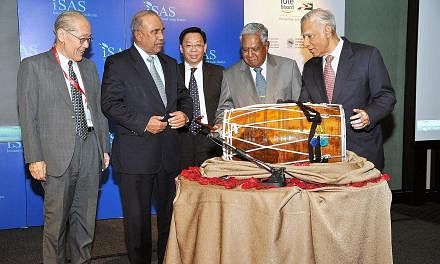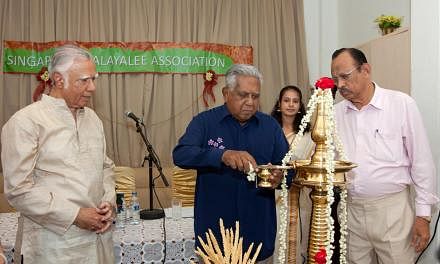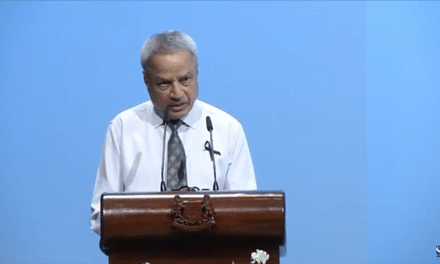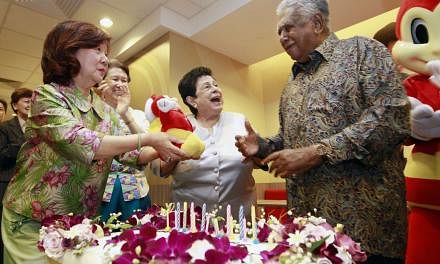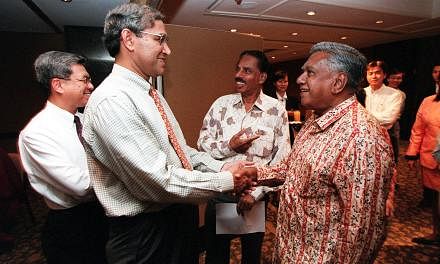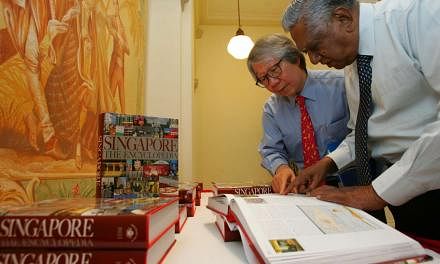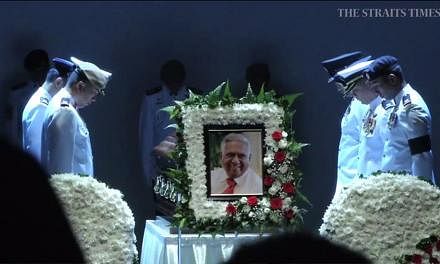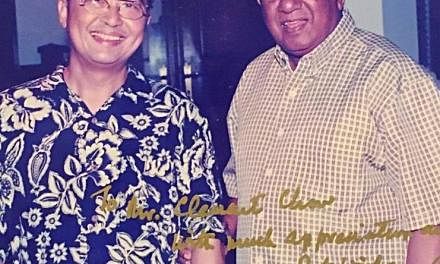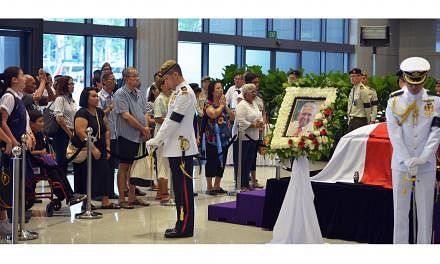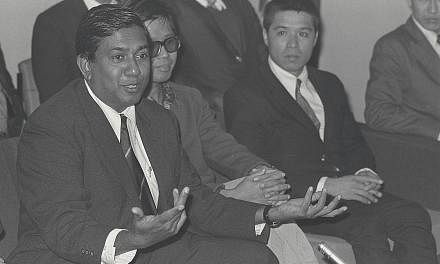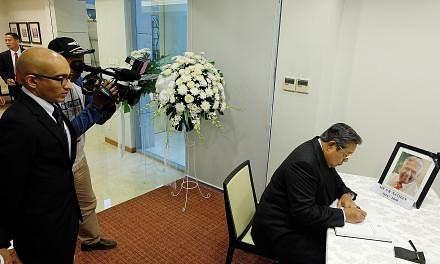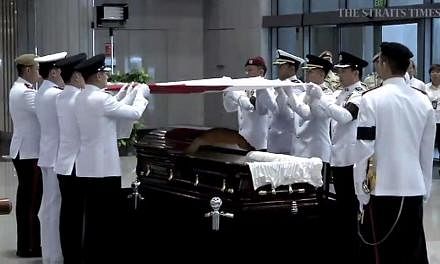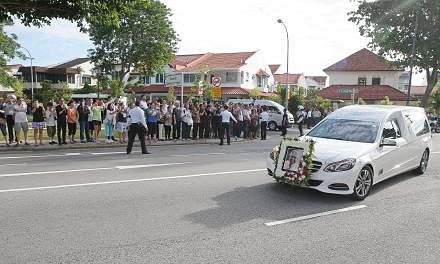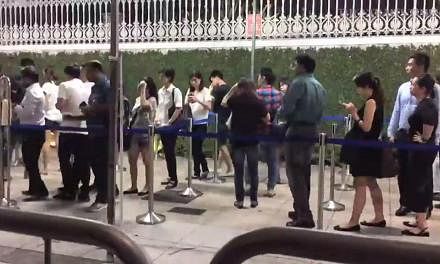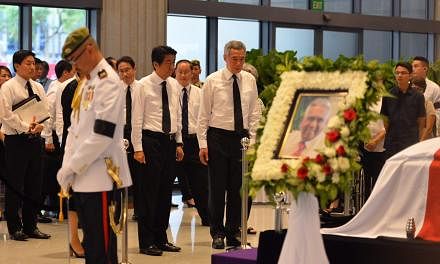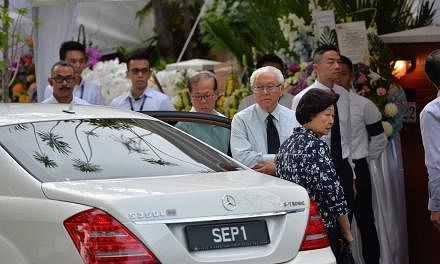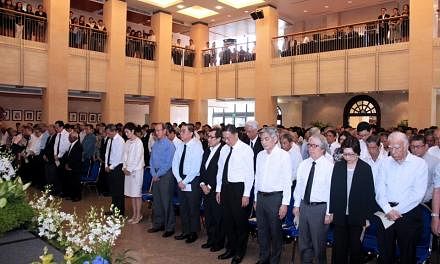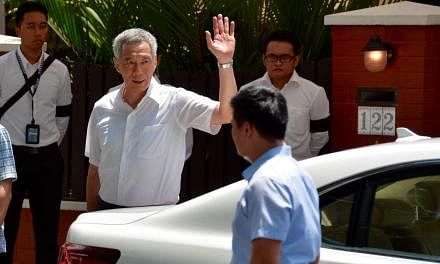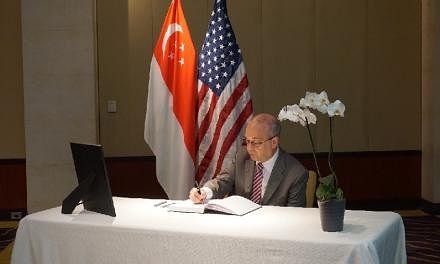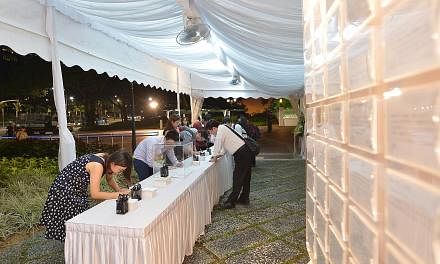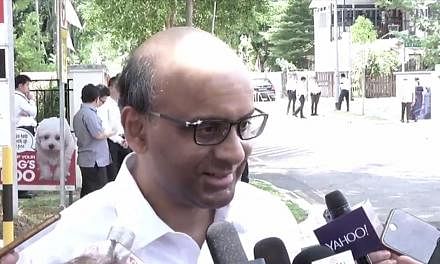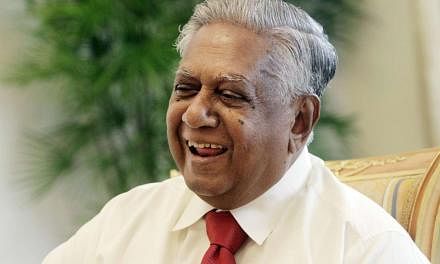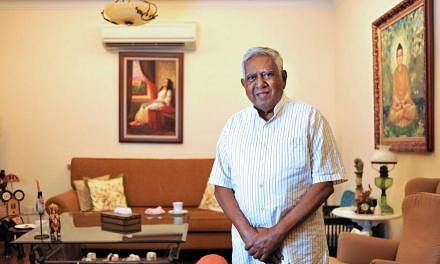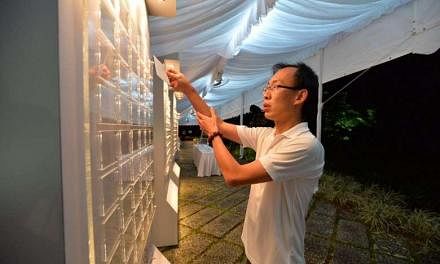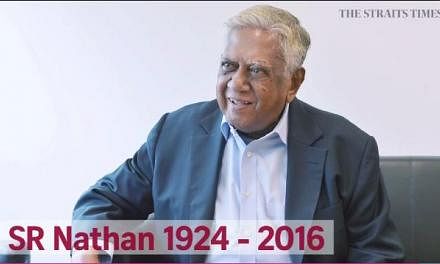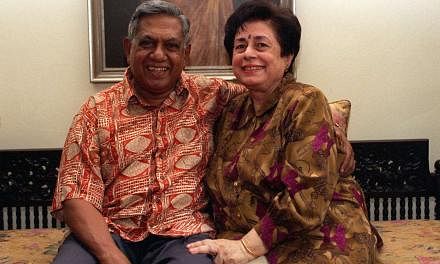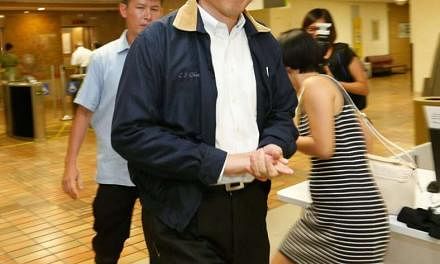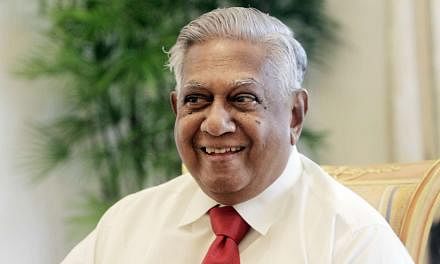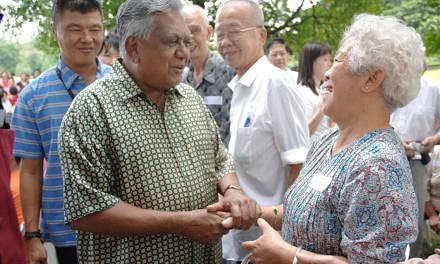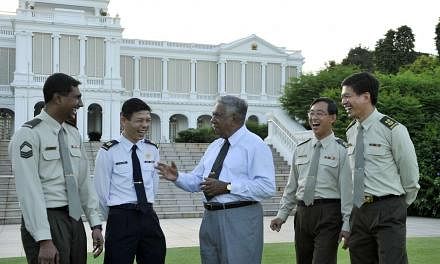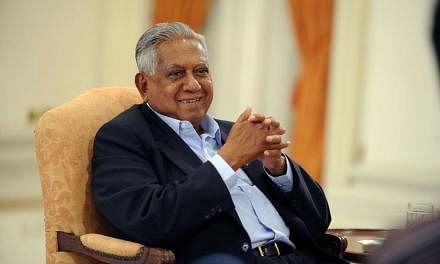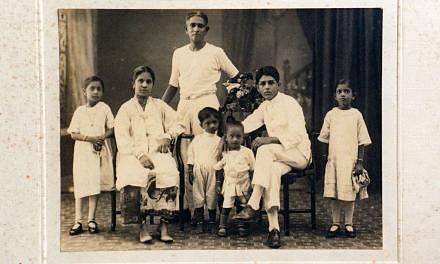SINGAPORE - After a distinguished career in public service spanning about 40 years, Mr S R Nathan was all set to enjoy retirement.
But at 11pm on June 1999, then Senior Minister Lee Kuan Yew called as Mr Nathan was getting ready for bed. They made small talk, and the call ended after Mr Lee asked to see him the next day.
It turned out to be a momentous meeting at which Mr Nathan, then 75, was asked to stand as a candidate for the Elected Presidency.
Just a year earlier, in an interview with The Straits Times, he had been asked what kept him going.
His answer would later explain as well his decision to postpone retirement to run for president: "There are people giving me work to do, and I don't want to let them down."
In his two terms lasting 12 years as Singapore's longest-serving president, he would go on to become a champion fund-raiser, friend to the ordinary man and a top Singapore flag-bearer abroad.
When he retired in 2011, Prime Minister Lee Hsien Loong thanked him for having raised the standing of the office, both domestically and internationally.
Particularly, he said, Mr Nathan's leadership during the global financial crisis in 2008 and 2009 was one of the key factors that helped Singapore emerge from the financial storm better than feared.
Mr Nathan, who was elected unopposed in August of 1999 and sworn in as Singapore's sixth president on Sept 1, was the first to test out the office's two-key system, which was put in place to safeguard the nation's reserves.
As the 2008-09 global financial crisis pushed Singapore into its worst recession ever, he was called on to make a landmark decision on whether the Government could draw on the national reserves.
His approval was sought twice.
In October 2008, he gave the nod for the reserves to be used to back deposits in commercial banks, merchant banks and finance companies to prevent a run by investors spooked by the collapse of financial institutions elsewhere, including the United States.
Then in early 2009, it asked to draw $4.9 billion to fund schemes to save jobs and ease credit for companies in Singapore.
Mr Nathan gave the nod after 11 days of deliberation, which led some to ask if his approval had been too quick. He disclosed at a 2009 press conference that he and his Council of Presidential Advisers had, in fact, sought regular briefings on the financial crisis' impact on Singapore, long before his approval was sought.
Asked about the landmark decision, he said with his trademark modesty: "That's my duty. A system was tested... and I think we all in good conscience can say we responded after clinically examining the proposal."
Mr Nathan had always maintained his role was not an adversarial one, and said his powers and roles were stated clearly in the Constitution.
His predecessor, the late Ong Teng Cheong, had publicly expressed unhappiness with the president's limited capacity to serve as an independent watchdog.
But Mr Nathan said of the presidency: "It was created by the Prime Minister, then approved by the Parliament as an audit on himself. A good working relationship with the Government is essential to the post."
More than any previous president, Mr Nathan had also worked to put the office to good use by setting up the President's Challenge charity drive in 2000 to encourage Singaporeans to help the less fortunate.
Having grappled with poverty in his growing-up years, he was a passionate advocate of the social service sector.
Over the years, he lent not just his name and time but also his talent to fund-raising. He recited part of the poem Desiderata in a TV charity show and, in a few minutes, donors had pledged more than $48,000.
The President's Challenge has hitherto raised more than $160 million, benefiting over 500 welfare organisations.
But much of his good work was done behind the camera, or "quietly" as Mr Lee put it. In his personal capacity, Mr Nathan had sponsored needy students through school and obtained special medical care for accident victims.
Mr Lee said: "Not all these activities were in the public eye or known to Singaporeans, but the many whose lives you touched will always remember your support."
His concern for ordinary Singaporeans went beyond the poor, and Mr Nathan was known to hold his own "meet-the-people sessions".
He conducted these during his daily morning walks in East Coast Park. He would stop often to chat with Singaporeans going about their morning exercise, and listen to their concerns.
A retired accountant who met him often on these walks told reporters in 2011: "When he doesn't see me at East Coast, he would get his people to call me to see if anything is wrong. He's a real people's president."
Mr Nathan's pledge when he took office was to be a president for all Singaporeans, with every community here as his parish.
This was reflected in his determination to learn Mandarin after he became president, to better communicate and relate to 70 per cent of Singapore's population.
Mr Nathan, who counted Malay, Tamil and Japanese among the languages he knew, also made the effort to speak in the vernacular at community events.
On the world stage, the consummate diplomat, who had been high commissioner to Malaysia and ambassador to the United States, also helped to cement Singapore's position internationally.
He received 50 heads of state on state visits and more than 100 prime ministers on official visits. State visits are the highest form of diplomatic exchange, and he made 30 such visits, including eight to Asean countries.
In many, he was the first Singapore head of state to visit, opening doors for local businessmen. These included his 2007 visits to South Africa, Namibia and Botswana.
In his memoir, he wrote: "Despite my age, I did not lack the energy for these state visits... My former PPS (principal private secretary) Lim Boon Wee, when he accompanied me on one tour, joked that I was twice his age but had twice his energy - if only the latter were true!"
At the end of the day, however, the presidency was not a post Mr Nathan, a hawker assistant in his youth, ever dreamt of attaining.
He told The Straits Times before he stepped down: "I had an unexpected experience, from where I came and where I've ended. I must be thankful to God to have achieved this."
